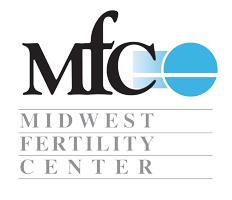Pregnancy is a time of significant change and adjustment, particularly when it comes to lifestyle and dietary habits. For many, the daily ritual of drinking coffee is a cherished routine. However, when it comes to pregnancy, there are important considerations regarding caffeine intake that every expectant mother should be aware of.
The Basics of Caffeine
Caffeine is a natural stimulant found in coffee, tea, chocolate, and various other foods and beverages. It works by stimulating the central nervous system, which can lead to increased alertness and wakefulness. While moderate caffeine consumption is generally safe for the general population, pregnancy introduces unique factors that necessitate a closer look at caffeine intake.
Caffeine and Pregnancy: The Concerns
During pregnancy, the body undergoes numerous physiological changes that affect how caffeine is metabolized. Pregnant women tend to metabolize caffeine more slowly, meaning it stays in their system longer. Moreover, caffeine crosses the placenta and reaches the developing fetus, which does not have the ability to fully metabolize it.
Studies have shown that high levels of caffeine consumption during pregnancy may be associated with an increased risk of several adverse outcomes, including:
– Miscarriage: Some research suggests a link between high caffeine intake and an increased risk of miscarriage, particularly in the first trimester.
– Low Birth Weight: Babies born to mothers who consume high amounts of caffeine may have a lower birth weight, which can be associated with a range of health issues.
– Preterm Birth: There is some evidence to suggest that excessive caffeine consumption could contribute to preterm birth.
Recommended Caffeine Intake During Pregnancy
Given the potential risks, health organizations have established guidelines for safe caffeine consumption during pregnancy. The American College of Obstetricians and Gynecologists (ACOG) recommends that pregnant women limit their caffeine intake to less than 200 milligrams per day. This is roughly equivalent to one 12-ounce cup of coffee, though caffeine content can vary significantly depending on the type and preparation of the coffee.
Practical Tips for Managing Caffeine Intake
For those who find it challenging to reduce their caffeine consumption, here are some practical tips to help manage intake:
1. Measure Your Coffee: Be mindful of the size of your coffee servings. Switching from a large coffee to a smaller one can make a significant difference in your overall caffeine intake.
2. Explore Decaffeinated Options: Decaf coffee and tea can provide the comforting routine of a hot beverage without the high caffeine content.
3. Monitor Other Sources of Caffeine: Remember that caffeine is present in many other foods and drinks, including tea, chocolate, soft drinks, and some medications. Keep track of these additional sources to ensure you stay within the recommended limits.
4. Gradually Reduce Intake: If you are accustomed to high caffeine consumption, consider gradually reducing your intake rather than quitting abruptly to avoid withdrawal symptoms such as headaches and irritability.
5. Stay Hydrated: Ensure you are drinking plenty of water throughout the day. This can help reduce the need for caffeinated beverages and keep you and your baby healthy.
While moderate caffeine consumption is generally considered safe during pregnancy, it is crucial to stay informed and adhere to the recommended guidelines. By being mindful of your caffeine intake and making necessary adjustments, you can continue to enjoy your coffee while prioritizing the health and well-being of both you and your baby.
Remember, every pregnancy is unique, and it is always best to discuss your dietary habits and any concerns with your healthcare providerhttps://mfcfamily.com/. They can provide personalized advice and support to help you navigate this exciting journey.

